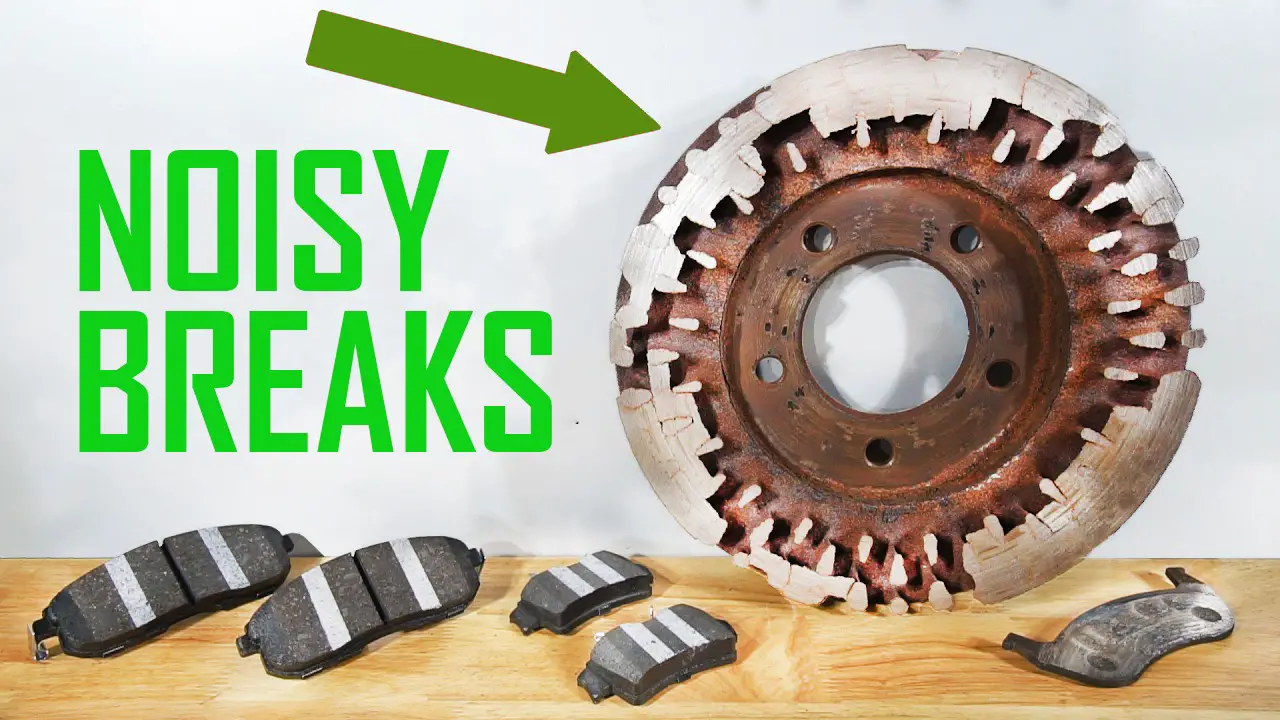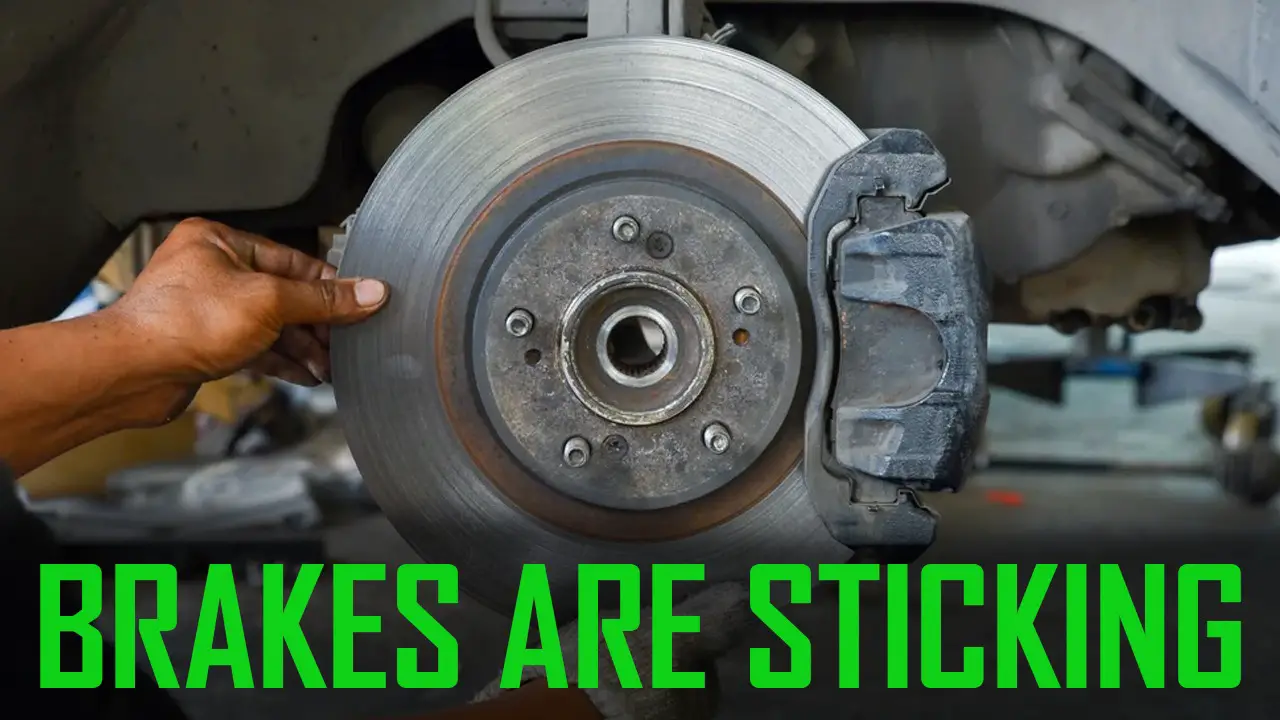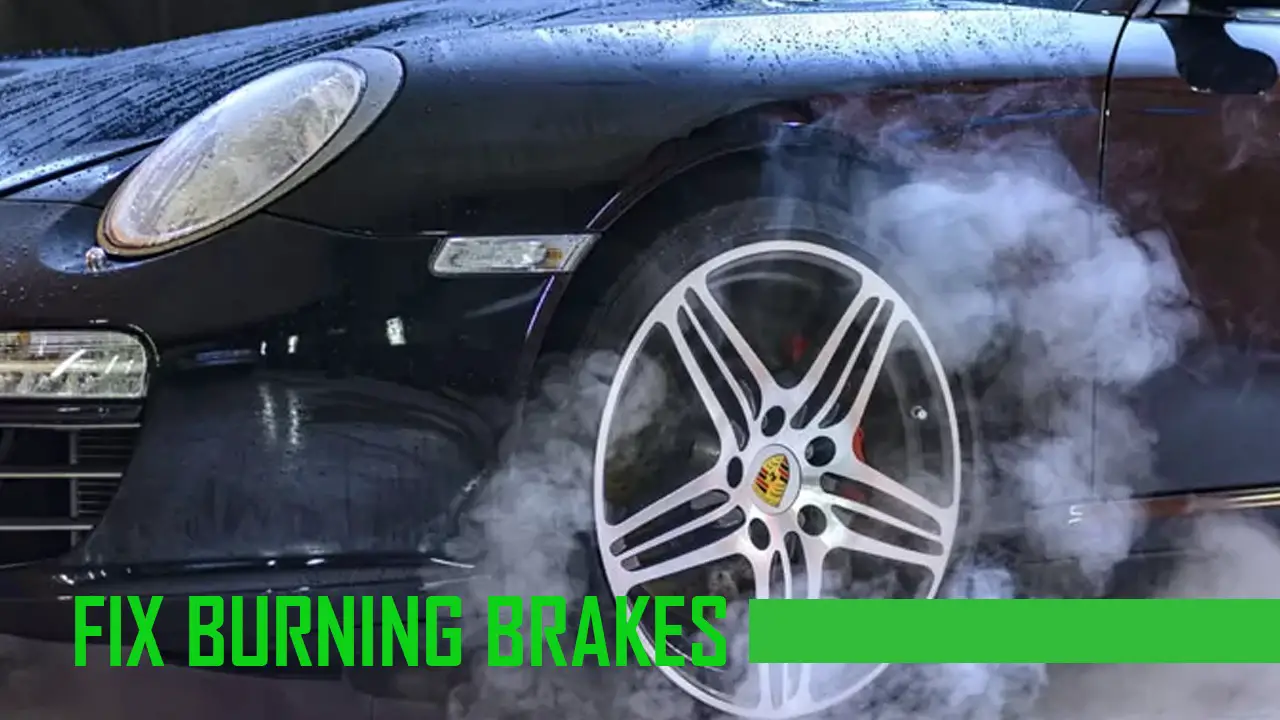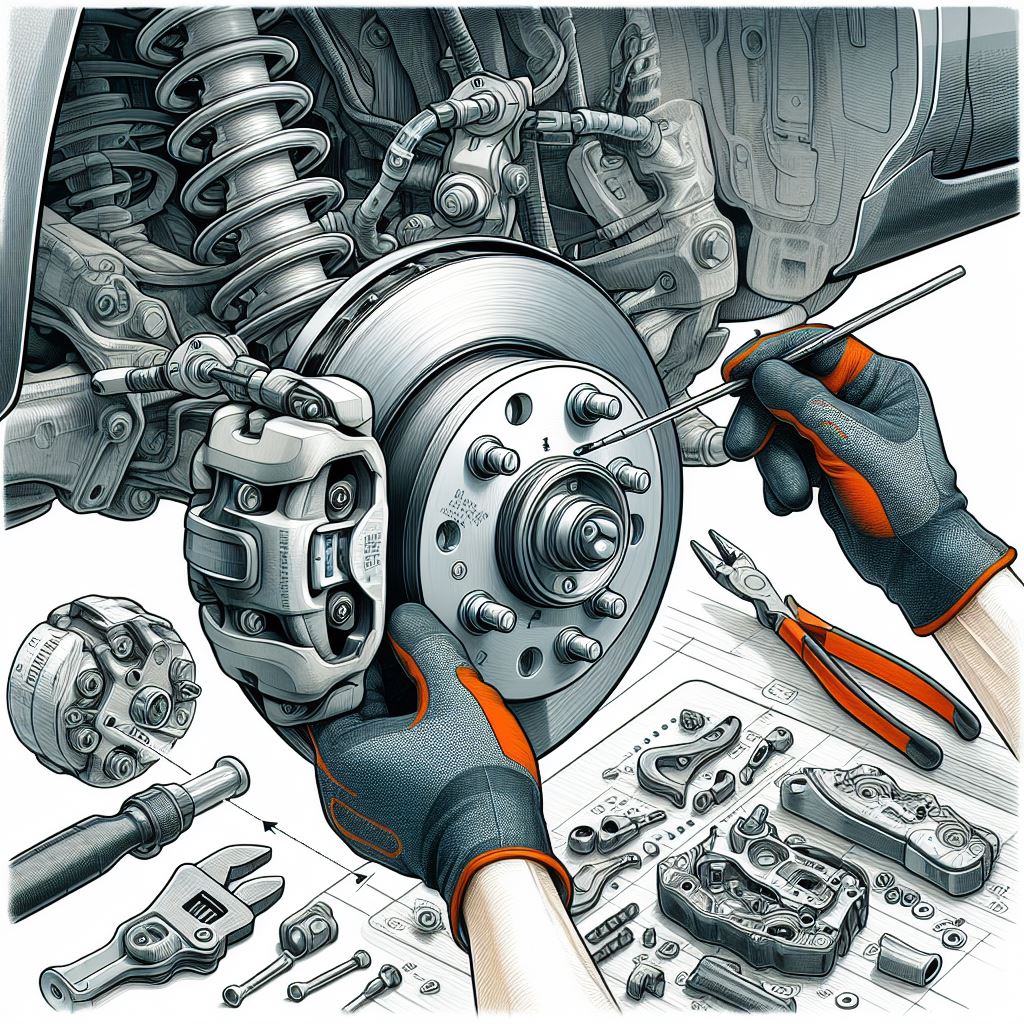How to fix Ford Escape brakes?
Maintaining a vehicle’s braking system is paramount for both safety and optimal performance, and the Ford Escape is no exception. If you’ve noticed issues with your Ford Escape’s brakes, from squeaking sounds to reduced stopping power, addressing them promptly is crucial. In this comprehensive guide, we will delve into the steps needed to troubleshoot and fix common brake issues on a Ford Escape. From inspecting brake pads and rotors to checking brake fluid levels and addressing potential caliper problems, this guide aims to provide a thorough understanding of brake maintenance for Ford Escape owners. Whether you’re a seasoned DIY enthusiast or a novice looking to tackle brake repairs, following these steps will empower you to diagnose and rectify brake issues, ensuring a safe and reliable driving experience in your Ford Escape.
Noisy breaks

When brake pads are very close to dying, they make noise, indicating that they are required to be replaced.
Leaking brake fluid reservoir
Leaky brake fluid reservoirs are usually caused by faulty seals or leaks in the system. If you notice water dripping from the master cylinder, you must replace the entire reservoir.
Brakes are sticking

If your brakes are stuck while driving, you should pull off the road immediately. Your vehicle’s brakes are designed to work together, which means that if one part fails, the rest of the system won’t function correctly. If you don’t want to risk getting into an accident, you should call a professional mechanic who can help you diagnose and fix the problem.
Brakes are grinding
Grinding brakes are usually caused by worn-out brake pads or other parts of the brake system that need to be replaced. Grinding brakes are often accompanied by squealing noises and smoke from under the vehicle.
You should first check whether the wheels are turning freely. If they are, then you should inspect the brake pads and rotors for signs of damage. If you can identify the problem, you will be able to fix them.
If everything looks good, then you should contact a professional mechanic. They will be able to tell you what needs to be done to eliminate the noise.
Brakes are pulsating
Pulsating brakes are usually caused by a bad master cylinder or a malfunctioning hydraulic pump. Pulsating brakes are characterized by sudden bursts of pressure followed by periods of low pressure. When this happens, the brake pedal becomes soft and unresponsive.
To fix pulsating brakes, you should determine whether the problem lies within the master cylinder or the hydraulic lines. If the problem is in the master cylinder, you should replace it. If the problem is with the hydraulic lines, you should replace those as well.
Brakes are breaking
Broken brakes are usually caused by excessive heat buildup inside the brake caliper. When this happens, the brake pads melt and stick to the rotor. To prevent overheating, you should use antifreeze regularly.
Brakes are pulling
Pulling brakes are usually caused by damaged brake drums or warped brake shoes. Pulling brakes are characterized by slow deceleration and jerky stops.
If you suspect your brakes are pulling, you should check whether the tires are flat. If they are, you should change them immediately.
If the tires aren’t flat, you should inspect the brake drum and shoe assembly for signs of wear. If the brake drum or shoes look worn out, you should replace them.
How to fix burning brakes?

Burning brakes are usually caused due to a leaky brake line or a defective vacuum booster. Burning brakes are characterized by a strong smell of gas and smoke from the exhaust pipe.
You should stop the car immediately and turn on the engine’s ignition key. Then, open the hood and remove the spark plugs.
After removing the spark plugs, you should disconnect the battery cables. Next, you should drain all the fluids from the engine. Once you have drained all the fluids, you should start the engine again. This process should be repeated until the smell goes away.
Once the smell has gone away, you should check the brake fluid level. If there is no leakage, you should add some new fluid. If there are still a lot of leakages, you should get a professional mechanic to repair the leak.
Troubleshoot to fix Ford Escape brakes
When troubleshooting and addressing brake issues on your Ford Escape, a systematic approach is essential to ensure the safety and efficiency of your vehicle’s braking system. If you’re grappling with symptoms such as squeaking or grinding noises during braking, the likely culprits are worn brake pads or damaged rotors. Thoroughly inspect the brake pads for adequate thickness, replacing them if they are worn beyond acceptable limits. Simultaneously, examine the rotors for signs of scoring or warping, opting for resurfacing or replacement as needed. A spongy brake pedal often indicates the presence of air in the brake lines or low brake fluid. Resolve this issue by bleeding the brake system and checking and replenishing the brake fluid to the recommended levels. Vibrations during braking may point to warped rotors, necessitating a measurement of rotor thickness and potential replacement or resurfacing.
Uneven brake wear could be attributed to sticking calipers or uneven brake pad contact. Inspect the calipers for proper movement, addressing any sticking issues by cleaning or replacing the calipers accordingly. Ensure even contact of brake pads on both sides to promote uniform wear. An illuminated ABS warning light may signify problems with the ABS sensor or wiring. Diagnose these components and proceed with necessary repairs or replacements. If you’re experiencing reduced stopping power, worn brake pads or contaminated brake fluid might be the issue. Replace worn pads promptly and, if necessary, consider flushing and replacing the brake fluid to restore optimal braking performance. Always consult your Ford Escape’s manual for model-specific guidance, adhere to safety protocols, and seek professional assistance if challenges arise beyond your expertise. Regular brake maintenance not only ensures your safety on the road but also contributes to the longevity and efficiency of your Ford Escape’s braking system.

Frequently Asked Questions (FAQs)
How do I fix my Ford Escape brakes?
Ford escape brakes are essential for stopping your car. But what happens when they go out? You may be tempted to just keep driving and hope for the best, but that’s not advisable. Instead, follow these steps to fix your Ford Escape brakes. First, locate the problem. If the brake pedal is soft or spongy, the first thing you should check is the brake fluid level. If it’s low, top it off and see if that fixes the problem. If not, then you may leak into your braking system. Next, check the brake pads. If they’re worn down, they’ll need to be replaced. Finally, take a look at the brake rotors. If they’re damaged, they’ll need to be replaced as well.
What kind of mechanic do I need to fix my Ford Escape brakes?
To fix your Ford Escape’s brakes, you need to have a certified and qualified mechanic. This person should be able to diagnose the problem by examining the symptoms. Then they use their knowledge of the car’s make and model to figure out what needs to be done. They will then use their tools and diagnostic equipment to fix your Ford Escape’s brakes.
What are the symptoms of a faulty brake?
Here are some symptoms that may indicate you have a faulty brake:
– A squealing noise from your brakes when you try to stop
– Difficulty stopping your vehicle or car pulling to one side
– A grinding sound when you apply the brakes
What are the different types of brakes?
Generally, there are four types of brakes. They are,
Disc
Drum
Anti-Lock
Emergency
Which component of the brakes causes them to make noise?
The noise is caused by rubbing brake pads against the brake disc. Brake pads are a critical part of the braking system; they make contact with the brake disc to stop it from spinning. The friction between these two parts causes heat, which causes a lot of noise.
Conclusion
Addressing brake issues on a Ford Escape requires a systematic approach and attention to detail. By following the troubleshooting steps and considering potential problems such as worn brake pads, damaged rotors, or issues with the brake fluid and calipers, you can identify and rectify the underlying causes. Whether it involves replacing brake components, bleeding the brake system, or addressing specific wear patterns, taking the time to diagnose and fix brake problems ensures optimal performance and safety.
Remember to refer to the Ford Escape’s manual for model-specific guidance and adhere to recommended safety protocols throughout the repair process. If you encounter challenges beyond your expertise, seeking professional assistance is advisable. Prioritizing the maintenance of your Ford Escape’s braking system is not only a commitment to safety but also contributes to the overall longevity and efficiency of your vehicle on the road.
